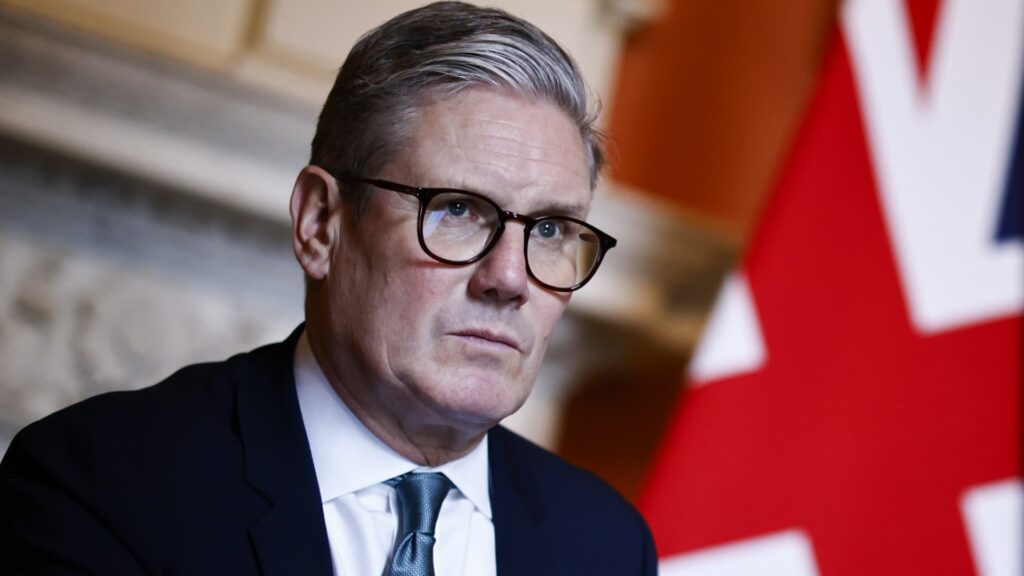British Prime Minister Keir Starmer reacts during a meeting with Defence Secretary John Healey and House of Lords Member George Robertson at 10 Downing Street on July 16, 2024 in London, England.
Wpa Pool | Getty Images News | Getty Images
Over the past few weeks, UK economic news has been heavily focused on the state of the UK’s public finances and how this will affect the British public and the outlook for economic growth.
There has been a lot of accusations and denials flying between the rival Labour and Conservative parties over the state of the country’s budget deficit, particularly between current Chancellor of the Exchequer Rachel Reeves and former Chancellor Jeremy Hunt.
Whatever the current state of the UK’s finances, it is clear that the current budget shortfall has been brewing for many years and risks having consequences that could last for many years to come. The ultimate dilemma Labour now faces is that while it cannot generate enough revenue to close the national budget shortfall without sustained economic growth, it cannot generate economic growth without real investment from both the public and private sectors.
In many ways, the current fiscal situation dates back to the 2008 financial crisis and the fact that the country’s economy was not able to easily recover from the budget shortfalls that occurred then.
As Britain’s revenues failed to recover, the then Conservative government opted to implement austerity measures, making temporary cuts to public investment in everything from infrastructure to public health and social care.
The problem lies in the fact that while these measures, touted as short-term solutions, remain effective, the options available to the current Labour government are, and will remain, limited, given the costs of the continuing ageing of the UK population, the strain of Brexit on everything from small business exporters to the financial sector, and continuing sluggish economic growth.
One thing the British government clearly cannot do, unlike countries such as the United States, China and Japan, is run a huge deficit, either by increasing spending or by further cutting taxes. Borrowing for the financial year to August was £64.1bn. ($85 billion), and the national debt reached 100% of GDP.
The UK has been considered one of the world’s reserve currencies for decades, but recent events, coupled with all the benefits that this brings, confirm that this is no longer the case. The bond market reaction to then Chancellor Liz Truss’s 2022 Budget showed that the private sector would not support significant deficit spending, especially through tax cuts.
At the same time, both Labour and Conservative leaders are keenly aware of the limited resources currently available to fund public programs, and one of the most commonly cited arguments in favor of leaving the EU is that money sent to the EU could be used to restore funding to the struggling National Health Service.
Concerns about new levels of austerity have been growing in recent days ahead of the Labour Party conference which began on Monday and the new Labour government’s first budget due to be published next month. Recent reports about possible cuts to the Winter Fuel Allowance for UK pensioners, as well as a recent House of Lords report into the unsustainability of the current budget deficit, have only heightened concerns.
The new Labour government has stressed that it has no plans to implement further austerity measures on public services, a point underlined in Reeves’ keynote speech on Monday afternoon.
So a key question not just for the conference but for Labour’s plans for the future is how to address the need for greater investment in the public sector, particularly services and infrastructure, while at the same time significantly increasing private investment domestically to address shortfalls in both revenue and economic opportunity.

One sign of a solution is the government’s proposal to complete the HS2 rail line with private development funding for the upgrade of London’s Euston station. To avoid a repeat of poor privatisations such as Railtrack and Thames Water, such partnerships need to find ways to benefit both investors and the public.
Another possible focus could be on further efforts to cut red tape and improve the efficiency of trade with continental Europe after Brexit, after several global companies expressed frustration at keeping their supply chains running amid delays at borders and unclear enforcement of rules.
A final possibility, which the new government has so far rejected, is tax increases, which businesses and markets might accept if they feel the price is worth it in terms of improved services and business infrastructure.
Ultimately, the private sector will want a clear long-term plan for delivery, whether that be tax and fiscal policy, or developing and encouraging long-term public-private partnerships. If Labour can deliver on that, it will go a long way to establishing a stronger environment for greater public confidence in the economic plan for the coming years.
Kevin Crowden is chief global strategist at the Milken Institute.

